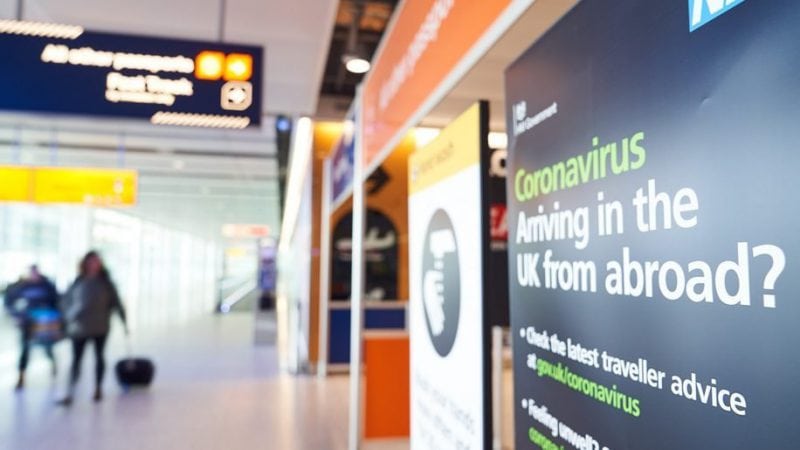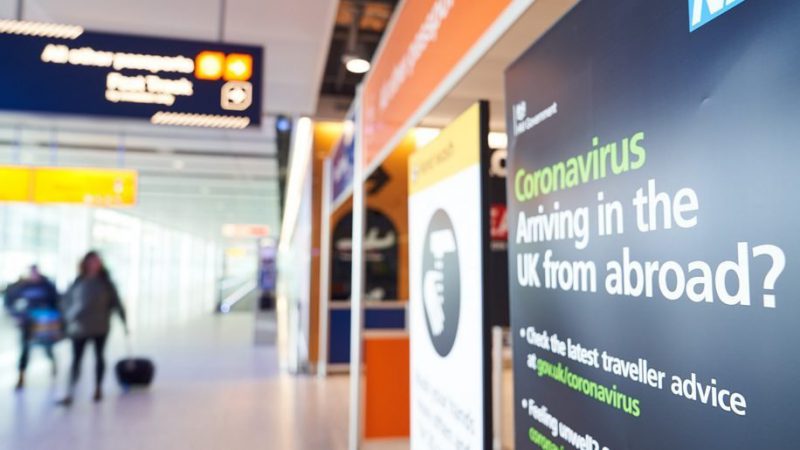EU Advises Shutting Down Travel from the US
Spread of COVID-19 delta variant prompts the European Council to recommend members close their borders to six countries
August 30, 2021

The European Union has issued a recommendation to its member states to reinstate a ban on nonessential travel from the US and five other nations, citing a spike in the number of COVID-19 cases in those areas. The other countries are Kosovo, Israel, Montenegro, Lebanon and North Macedonia, according to an EU announcement.
The decision reverses a recommendation the Council made in June to grant entry to fully vaccinated travelers from the US.
The change to the EU travel list is not binding on member states, meaning some countries may continue to allow fully-vaccinated US visitors. However in general, individual EU countries have followed the recommendations as each decides on its own health policies.
According to the EU Council, each member state will determine the timing of its policies, but the tighter restrictions are likely to follow within days.
The move has reportedly been under consideration for several weeks, as average infection rates in the US have continued to climb and are now above the levels in the EU. Last week, the Slovenian presidency of the EU recommended removing the US and five other countries from the EU travel list. The list is reviewed every two weeks.
According to the EU, the reversal was prompted by the rise in COVID-19 cases. However an underlying factor is increasing pressure from foreign governments and the industry on the Biden administration for its decision to maintain the ban on inbound non-essential travel to the US.
Earlier this summer, key international markets, including the EU, the United Kingdom and Canada all announced relaxed travel restrictions for travel to those destinations from the US.
And although there were no guarantees of reciprocity tied to those policies, foreign leaders are growing increasingly impatient with the administration’s failure to act more quickly on a promised “phased approach” to reopening travel.
Early in August, European Commission President Ursula von der Leyen warned that the EU was looking for action as soon as possible. “We need to solve the problem as soon as possible and are in contact with our American friends,” she said at the time. “That shouldn’t drag on for weeks.”
Now however, the surge in the COVID-19 delta variant in the US is raising alarms globally, as new infections here account for almost a quarter of all new cases reported worldwide, according to health officials.
Recently the Transportation Security Administration extended the current mask mandates on airplanes, trains and buses and at airports and train stations through Jan. 18. And travel industry leaders are predicting that it will be 2022 before governments can begin to roll back pandemic-era travel bans.
On the other hand, data show that how soon and by whom travel bans get lifted will have short term ramifications and long-term impact for global growth and trade, threatening to derail relations between economies and contribute to rising geopolitical tensions.
“This is a disappointing development following the boost in inbound visitation by vaccinated travelers that many EU countries experienced this summer,” said Tori Emerson Barnes executive vice president of public affairs and policy at the US Travel Association. “We encourage the EU to remain open to vaccinated Americans, and likewise urge the United States to take immediate steps to begin welcoming vaccinated individuals and restoring our travel economy.”




